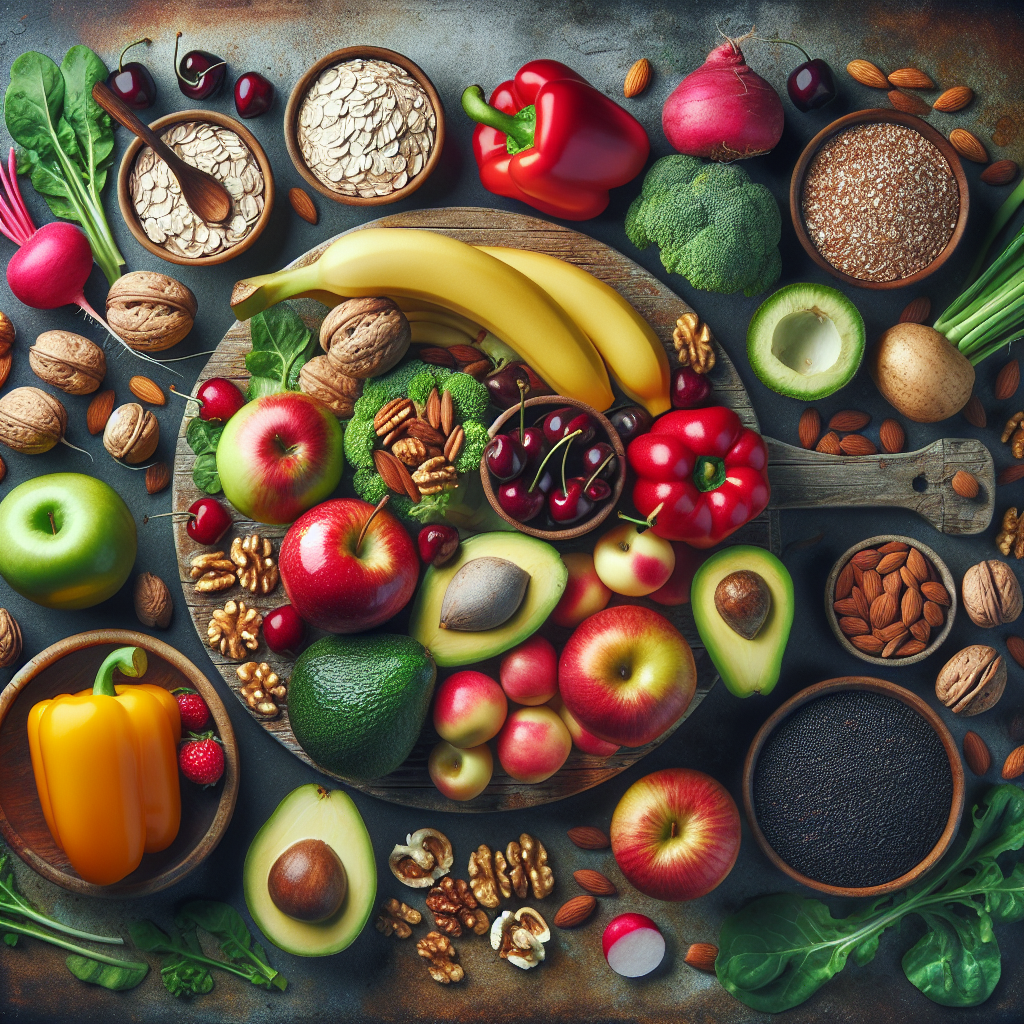How Organic Foods Support Gallbladder Health
The gallbladder plays a crucial role in digestion by storing and releasing bile to break down fats. When this small organ isn’t functioning optimally, it can lead to painful gallstones, inflammation, and digestive discomfort. Fortunately, choosing the right organic foods can help maintain gallbladder health, prevent gallstone formation, and support proper bile production.
The Gallbladder-Friendly Diet Principle
A gallbladder-healthy diet focuses on foods that are naturally low in unhealthy fats while being rich in fiber, antioxidants, and essential nutrients. Organic options are particularly beneficial as they reduce exposure to pesticides and chemicals that may burden the digestive system.
Top Organic Foods for Gallbladder Health
1. Fiber-Rich Fruits and Vegetables
Dietary fiber helps regulate cholesterol levels, which is important since most gallstones are composed of cholesterol. Excellent organic choices include:
- Leafy greens (kale, spinach, Swiss chard)
- Cruciferous vegetables (broccoli, Brussels sprouts, cauliflower)
- Apples and pears (with skin for extra fiber)
- Beets and artichokes (support bile production)
2. Healthy Fats from Organic Sources
Contrary to popular belief, not all fats are bad for the gallbladder. The right kinds of fats can actually stimulate healthy bile flow:
- Avocados
- Extra virgin olive oil
- Organic nuts and seeds (especially flaxseeds and walnuts)
- Wild-caught salmon (rich in omega-3s)
3. Whole Grains and Legumes
These complex carbohydrates provide steady energy and promote digestive health:
- Quinoa
- Brown rice
- Lentils
- Chickpeas
Foods to Avoid for Gallbladder Health
Certain foods can trigger gallbladder issues or worsen existing conditions:
- Processed foods high in trans fats
- Refined sugars and white flour products
- Fried and greasy foods
- Conventionally raised fatty meats
- Excessive dairy products
Nutrients That Support Gallbladder Function
1. Vitamin C
This powerful antioxidant helps convert cholesterol into bile acids. Excellent organic sources include:
- Citrus fruits
- Bell peppers
- Kiwi
- Strawberries
2. Magnesium
Magnesium deficiency has been linked to gallstone formation. Good sources include:
- Organic dark leafy greens
- Pumpkin seeds
- Almonds
- Black beans
3. Lecithin
This fat-like substance helps break down cholesterol and may prevent gallstones. Find it in:
- Organic eggs
- Soybeans
- Sunflower seeds
Hydration and Gallbladder Health
Staying well-hydrated is essential for maintaining proper bile consistency. Aim for:
- 8-10 glasses of filtered water daily
- Herbal teas (dandelion root tea is particularly beneficial)
- Fresh vegetable juices (especially beet or carrot)
Sample Gallbladder-Friendly Meal Plan
Breakfast
Organic oatmeal topped with flaxseeds, fresh berries, and a tablespoon of almond butter
Lunch
Quinoa salad with mixed organic greens, chickpeas, avocado, and olive oil dressing
Dinner
Grilled wild salmon with steamed broccoli and roasted sweet potatoes
Snacks
Fresh apple with almond butter or a small handful of organic walnuts
Lifestyle Tips for Gallbladder Health
In addition to dietary changes, consider these habits:
- Maintain a healthy weight through gradual changes
- Exercise regularly to promote digestion
- Practice stress-reduction techniques
- Avoid rapid weight loss diets
- Eat smaller, more frequent meals
By incorporating these organic foods and healthy habits into your routine, you can support your gallbladder function and reduce the risk of gallstone formation. Always consult with a healthcare professional before making significant dietary changes, especially if you have existing gallbladder issues.
